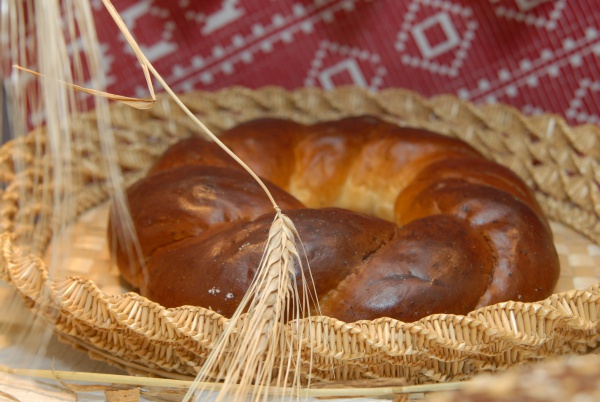Facts About Kalács
Kalach, also known as kalács, kolach, kolač, or colac, is a cherished traditional bread from Eastern Europe, often enjoyed during special ceremonial meals. The name "kalach" originates from the Old Slavonic word "kolo" which means "circle" or "wheel."
In Hungary, kalács is a sweet, braided bread similar to brioche and is especially popular during Easter. Traditionally, it was made with high-quality flour, but nowadays, it is enriched with milk and eggs, enhancing its flavor and texture.
In Romania, colac is a special braided bread prepared for significant occasions such as Christmas, Easter, weddings, and funerals. The name "colac" derives from the Slavic word "kolač" also meaning "circle" or "wheel."
In Russia, kalach is a twisted white bread that was once synonymous with any type of white bread. Typically, it is circular with a thinner part that serves as a handle, making it easy to eat. Traditionally, a person who made kalaches was called a "kalachnik" and their descendants might bear surnames like "Kalachnikov" or "Kalashnikov."
In Ukraine, kolaches are crafted by braiding wheat flour dough into ring-shaped or oblong forms. These breads symbolize luck, prosperity, and abundance and are prepared for rituals such as Svyat Vechir (Holy Supper) and Christmas. Ukrainian kolaches are also an integral part of funeral ceremonies and are given as gifts to bless fertility.

 Romania
Romania